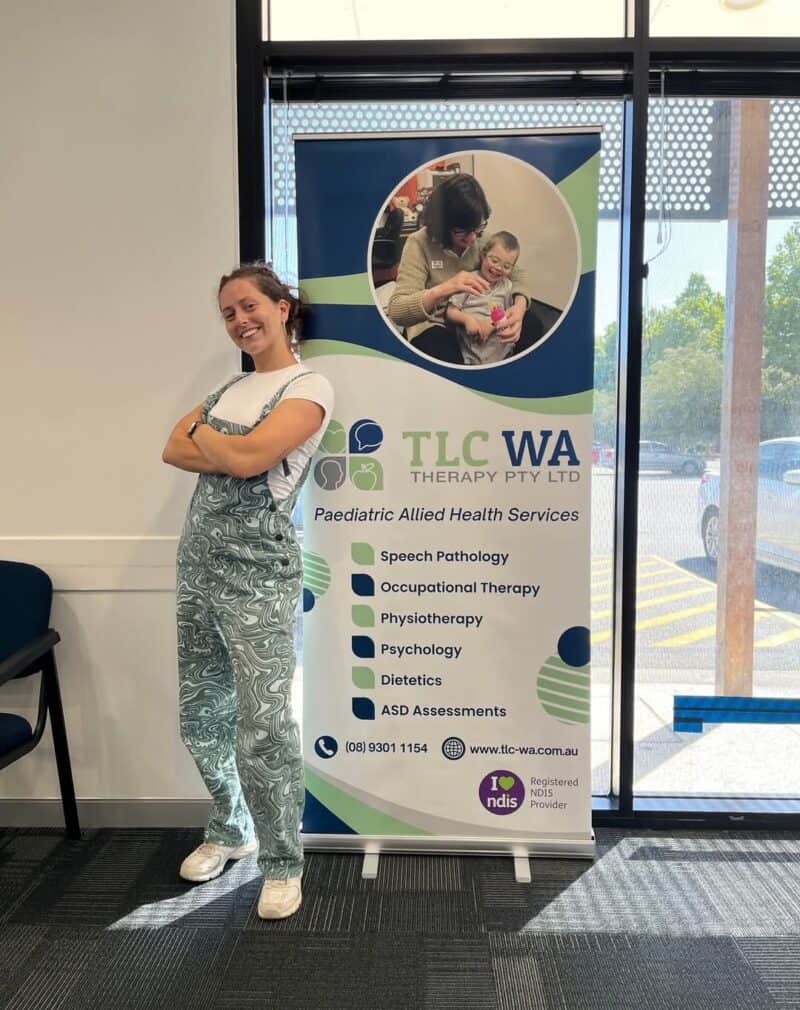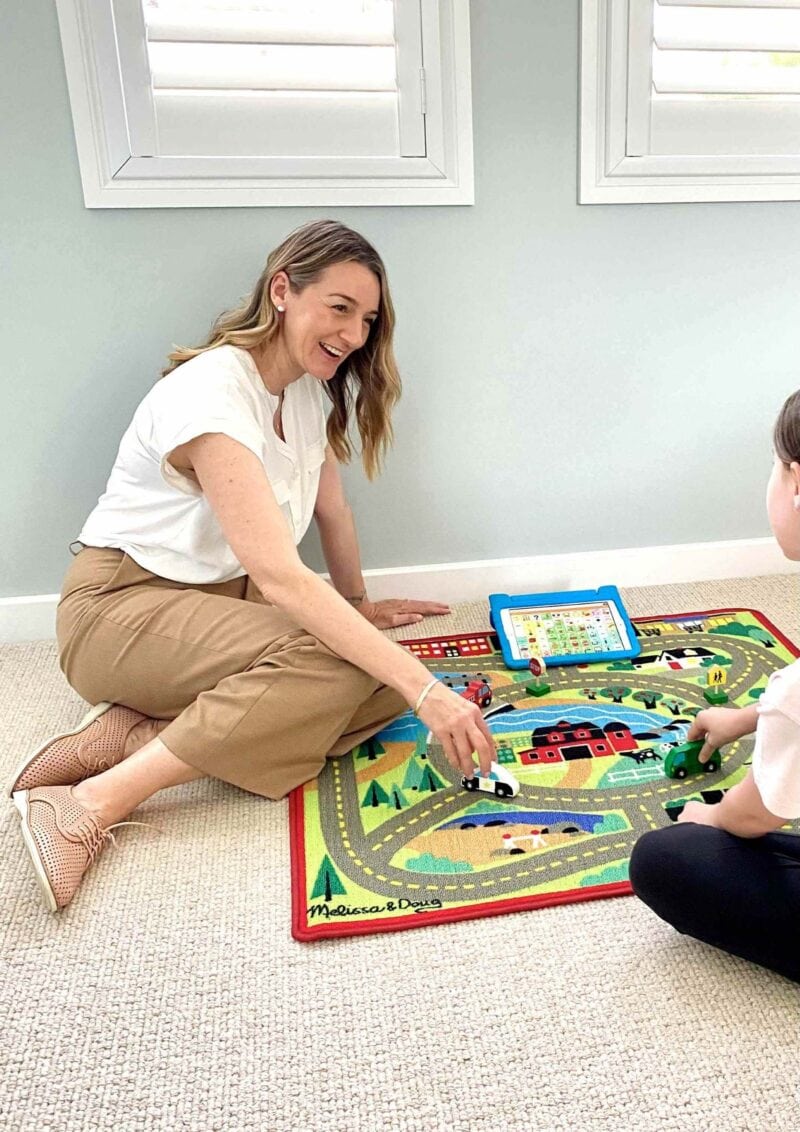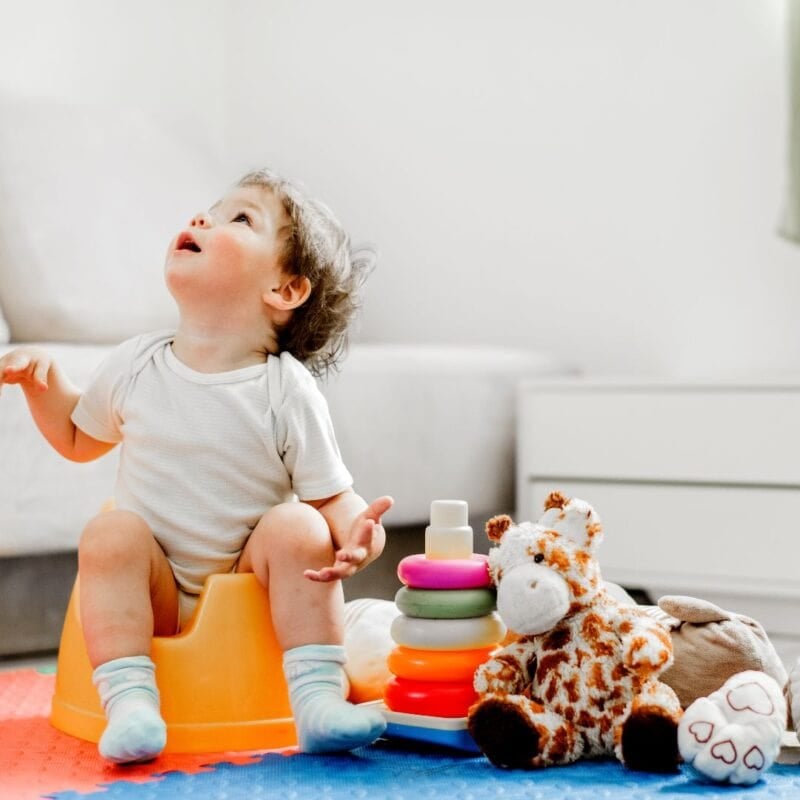find help for
PDA kids
Pathological Demand Avoidance (PDA) is described as an atypical presentation or profile of autism. Also known as Extreme Demand Avoidance or Pervasive Drive for Autonomy.
Go to: Who Can Help? | What’s On | Freebies | Books | Resources to Help
15 PDA-informed therapists who support children and teens in Perth Finding PDA-informed therapists can be challenging. Here are a list of Perth therapists and providers who are PDA-informed and able […]
The NDIA and Western Australia's Department of Education have different requirements for providing evidence of disability when it comes to autism.
Support & Interest Groups
A private Facebook group for Perth/WA parents of PDA kids, adolescents and young adults. This wonderful community exists to share any info and support that might be useful to each other on this rocky road. Please invite your partners and other PDA parents to join us – but remind them they need to answer the membership questions!
PDA-Aware Autism Assessments
Not all practitioners recognise PDA. These practitioners have self-identified as having an awareness of and recognising PDA presentations.
House of Mind 
- Assessment - ADHD
- +10 Assessment - Autism, Assessment - Dyscalculia (Specific Learning Disorder in Mathematics), Assessment - Dysgraphia (Specific Learning Disorder in Writing), Assessment - Dyslexia (Specific Learning Disorder in Reading), Assessment - Giftedness, Assessment - Intellectual Disability, Assessments - Educational and Cognitive, Parent / Carer Support, Psychologist, Social Worker
- 41 York Street, Subiaco Western Australia 6008, Australia



Growing Minds Clinical Psychology 
- Assessment - ADHD
- +7 Assessment - Autism, Assessment - Giftedness, Assessment - Intellectual Disability, NDIS Services, Play Therapist, Psychologist, Psychologist - Clinical
- Unit 4, 64 Marina Boulevard, Ocean Reef Western Australia 6027, Australia
Rebecca Machado Psychology 
- Assessment - ADHD
- +11 Assessment - Autism, Assessment - Dyscalculia (Specific Learning Disorder in Mathematics), Assessment - Dysgraphia (Specific Learning Disorder in Writing), Assessment - Dyslexia (Specific Learning Disorder in Reading), Assessment - Giftedness, Assessment - Intellectual Disability, Assessment - SCSA, Assessments - Educational and Cognitive, NDIS Services, Play Therapist, Psychologist
- 620a Karel Avenue, Jandakot Western Australia 6164, Australia



Amherst Psychology 
- Assessment - ADHD
- +11 Assessment - Autism, Assessment - Dyscalculia (Specific Learning Disorder in Mathematics), Assessment - Dysgraphia (Specific Learning Disorder in Writing), Assessment - Dyslexia (Specific Learning Disorder in Reading), Assessment - Functional Capacity, Assessment - Giftedness, Assessment - Intellectual Disability, Assessments - Educational and Cognitive, NDIS Services, Neuropyschologist, Psychologist
- 2 Batman Road, Canning Vale Western Australia 6155, Australia


TLC WA 
- Assessment - Autism
- +10 Assessment - Developmental Language Disorder (DLD), Dietitian, NDIS Services, Occupational Therapist, Parent / Carer Support, Physiotherapist, Psychologist, Psychologist - Clinical, Speech Pathologist, Speech Pathologist - Feeding
- 10 Elcar Lane, Joondalup Western Australia 6027, Australia
Dr Chaandini Subramaniam, Perth Paediatrics 
- Assessment - ADHD
- +5 Assessment - Autism, Assessment - Dyslexia (Specific Learning Disorder in Reading), Assessments - Educational and Cognitive, Paediatrician, Psychologist
- 288 High Road, Riverton Western Australia 6148, Australia



The Kidd Clinic 
- Art Therapist
- +9 Assessment - ADHD, Assessment - Autism, Assessment - Functional Capacity, Assessment - Intellectual Disability, Assessments - Educational and Cognitive, Counsellor, Occupational Therapist, Psychologist, Training Provider
- 526 Fitzgerald Street, North Perth Western Australia 6006, Australia
Mini Minds Child and Adolescent Health 
- Assessment - Autism
- +9 Assessment - Dyscalculia (Specific Learning Disorder in Mathematics), Assessment - Dyslexia (Specific Learning Disorder in Reading), Assessment - Giftedness, Assessment - Intellectual Disability, Assessments - Educational and Cognitive, Occupational Therapist, Play Therapist, Psychologist, Psychologist - Clinical
- 163 Canning Highway, East Fremantle Western Australia 6158, Australia



Bowyer Psychology 
- Assessment - ADHD
- +12 Assessment - Autism, Assessment - Dyscalculia (Specific Learning Disorder in Mathematics), Assessment - Dysgraphia (Specific Learning Disorder in Writing), Assessment - Dyslexia (Specific Learning Disorder in Reading), Assessment - Functional Capacity, Assessment - Giftedness, Assessment - Intellectual Disability, Assessments - Educational and Cognitive, Neuropyschologist, Psychologist, Psychologist - Clinical, Psychotherapist
- Suite 1, 7 The Esplanade, Mount Pleasant Western Australia 6153, Australia
Bubbles Speech Pathology 
- Assessment - Autism
- +3 Assessment - Developmental Language Disorder (DLD), Assessment - Language Development Centre Referrals, Speech Pathologist
- 1/100 Walters Drive, Osborne Park Western Australia 6017, Australia
PDA-Aware Practitioners

Meelup Occupational Therapy 
- Assessment - Functional Capacity
- +1 Occupational Therapist
- Dunsborough, Western Australia, Australia
Brave Heart Wellbeing
- Play Therapist
- +2 Psychologist, Social Worker
- 31 Green Road, Hillarys Western Australia 6025, Australia


TLC WA 
- Assessment - Autism
- +10 Assessment - Developmental Language Disorder (DLD), Dietitian, NDIS Services, Occupational Therapist, Parent / Carer Support, Physiotherapist, Psychologist, Psychologist - Clinical, Speech Pathologist, Speech Pathologist - Feeding
- 10 Elcar Lane, Joondalup Western Australia 6027, Australia
House of Mind 
- Assessment - ADHD
- +10 Assessment - Autism, Assessment - Dyscalculia (Specific Learning Disorder in Mathematics), Assessment - Dysgraphia (Specific Learning Disorder in Writing), Assessment - Dyslexia (Specific Learning Disorder in Reading), Assessment - Giftedness, Assessment - Intellectual Disability, Assessments - Educational and Cognitive, Parent / Carer Support, Psychologist, Social Worker
- 41 York Street, Subiaco Western Australia 6008, Australia



Sweet Spot Therapy 
- Occupational Therapist
- +1 Speech Pathologist
- 178 Saint Brigids Terrace, Scarborough Western Australia 6019, Australia
Mini Minds Child and Adolescent Health 
- Assessment - Autism
- +9 Assessment - Dyscalculia (Specific Learning Disorder in Mathematics), Assessment - Dyslexia (Specific Learning Disorder in Reading), Assessment - Giftedness, Assessment - Intellectual Disability, Assessments - Educational and Cognitive, Occupational Therapist, Play Therapist, Psychologist, Psychologist - Clinical
- 163 Canning Highway, East Fremantle Western Australia 6158, Australia



Angela Bain Psychology 
- NDIS Services
- +2 Play Therapist, Psychologist
- Unit 4, 64 Marina Boulevard, Ocean Reef Western Australia 6027, Australia
Allegro Therapy 
- Occupational Therapist
- +2 Physiotherapist, Speech Pathologist
- 183 Walter Road West, Dianella Western Australia 6059, Australia, 7/4 Bergen Way, Mindarie 6030, 290 Foreshore Drive, Geraldton 6530
Bubbles Speech Pathology 
- Assessment - Autism
- +3 Assessment - Developmental Language Disorder (DLD), Assessment - Language Development Centre Referrals, Speech Pathologist
- 1/100 Walters Drive, Osborne Park Western Australia 6017, Australia

In Flow Occupational Therapy 
- Assessment - Functional Capacity
- +1 Occupational Therapist
- Subiaco Western Australia 6008, Australia

Spectrum Therapy WA 
- Assessment - Developmental Language Disorder (DLD)
- +7 Assessment - Functional Capacity, Assessment - Language Development Centre Referrals, NDIS Services, Occupational Therapist, Physiotherapist, Speech Pathologist, Speech Pathologist - Feeding
- 2/4 Royce Court, Joondalup Western Australia 6027, Australia
Rebecca Machado Psychology 
- Assessment - ADHD
- +11 Assessment - Autism, Assessment - Dyscalculia (Specific Learning Disorder in Mathematics), Assessment - Dysgraphia (Specific Learning Disorder in Writing), Assessment - Dyslexia (Specific Learning Disorder in Reading), Assessment - Giftedness, Assessment - Intellectual Disability, Assessment - SCSA, Assessments - Educational and Cognitive, NDIS Services, Play Therapist, Psychologist
- 620a Karel Avenue, Jandakot Western Australia 6164, Australia
Evolve Psychiatric Services 
- Assessment - ADHD
- +2 Assessment - Autism, Child & Adolescent Psychiatrist

Neurospark Occupational Therapy Kristy Casella 
- Assessment - Motor Dysgraphia
- +1 Occupational Therapist
- Scarborough Beach Road, Mount Hawthorn Western Australia 6016, Australia



Rising Family OT 
- Assessment - Functional Capacity
- +1 Occupational Therapist
- Innaloo Western Australia 6018, Australia



Palms Allied Health 
- Exercise Physiologist
- +5 Inclusive activity provider, Massage Therapist, Occupational Therapist, Physiotherapist, Speech Pathologist
- 4/637 Marshall Road, Malaga Western Australia 6090, Australia



Growing Minds Clinical Psychology 
- Assessment - ADHD
- +7 Assessment - Autism, Assessment - Giftedness, Assessment - Intellectual Disability, NDIS Services, Play Therapist, Psychologist, Psychologist - Clinical
- Unit 4, 64 Marina Boulevard, Ocean Reef Western Australia 6027, Australia



Functional Therapy Co 
- Assessment - Developmental Coordination Disorder (DCD)
- +10 Assessment - Developmental Language Disorder (DLD), Assessment - Dysgraphia (Specific Learning Disorder in Writing), Assessment - Functional Capacity, Assessment - Language Development Centre Referrals, Assessment - Motor Dysgraphia, NDIS Services, Occupational Therapist, Parent / Carer Support, Speech Pathologist, Speech Pathologist - Feeding
- 45 Ventnor Avenue, West Perth Western Australia 6005, Australia
Whale Shark Therapy Services 
- Assessment - Functional Capacity
- +1 Occupational Therapist
- Karrinyup Western Australia 6018, Australia
Navigating Neurodivergence 
- High Wycombe Western Australia 6057, Australia



Therapy Inc 
- Assessment - Functional Capacity
- +4 Occupational Therapist, Physiotherapist, Psychologist, Speech Pathologist
- Shop 6, 816 Beeliar Drive, Success Western Australia 6164, Australia



Psychwest 
- Assessment - ADHD
- +9 Assessment - Autism, Assessment - Dyscalculia (Specific Learning Disorder in Mathematics), Assessment - Dysgraphia (Specific Learning Disorder in Writing), Assessment - Dyslexia (Specific Learning Disorder in Reading), Assessment - Giftedness, Assessments - Educational and Cognitive, NDIS Services, Parent / Carer Support, Psychologist
- 25 Junction Parade, Midland Western Australia 6056, Australia
JS Therapy Services 
- Assessment - ADHD
- +8 Assessment - Autism, Assessment - Functional Capacity, Assessment - Giftedness, Assessment - Intellectual Disability, Assessments - Educational and Cognitive, Occupational Therapist, Physiotherapist, Psychologist
- 3B/210 Wanneroo Road, Madeley Western Australia 6065, Australia


Be You Therapy Assessments 
- Assessment - Functional Capacity
- +1 Occupational Therapist
- Scarborough Beach Road, Scarborough Western Australia 6019, Australia
Kid Speak Paediatric Speech Pathology 
- Assessment - Autism
- +2 Speech Pathologist, Speech Pathologist - Feeding
- 2/155 Onslow Road, Shenton Park Western Australia 6008, Australia



Path to Grow Occupational Therapy 
- Assessment - Functional Capacity
- +1 Occupational Therapist
- Houston Avenue, Dianella Western Australia 6059, Australia



Neuroinclusion 
- 1 Merino Entrance, Cockburn Central Western Australia 6164, Australia
Ability Now Therapy Services 
- Assessment - Functional Capacity
- +1 Occupational Therapist
- Carita Court, Maddington Western Australia 6109, Australia
The Nurtured OT 
- Assessment - Functional Capacity
- +2 Occupational Therapist, Parent / Carer Support
- 798 South Western Highway, Byford Western Australia 6122, Australia
Free Downloads
WA Autism Parents' Handbook
Your essential guide to services and support in Western Australia.
Support Strategies to Try at School for Students with a Pathological Demand Avoidance (PDA) Profile
This “cheat sheet” for educators has been collated and shared by Heidi Brandis who is a PDA Parent, former OT, author of the WA Autism Parent Handbook plus many more.
Declarative Language Cheat Sheet
Free Declarative Language Cheat Sheet is available to download from the Raising PDA Kids website.




Resources to help
Website created by a Mum of a PDA child and OT that includes access to:
- 10 Week Online Mother’s Group
- Online training for professionals.














